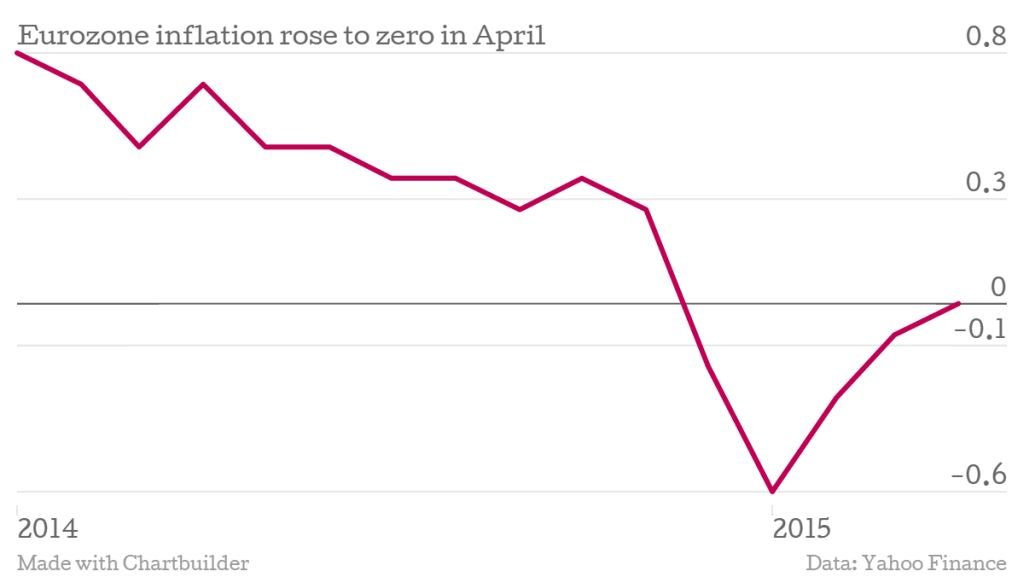Eurozone inflation rose to zero in April


Eurozone inflation rose to zero in April, ending a fourth-month stretch of price declines across the euro area.
A flash estimate from official statistics agency Eurostat showed that Eurozone annual inflation was flat in April, having risen to -0.1 per cent a month earlier. It's up considerably from a low of -0.6 in January.
The biggest drivers were price increases in food and tobacco, as well as services which both rose by 0.9 per cent. Energy prices continued to lag, declining 5.8 per cent, but this was still less than a six per cent slide in March.
Meanwhile the core rate of inflation, which strips out more volatile sectors such as food and energy costs, remained unchanged at 0.6 per cent.
However inflation still remains well below the European Central Bank's target of just under two per cent, a benchmark it failed to reach for the past two years.
And economists have continued to warn that there is still much to be done.
"Just in the same way that a small negative reading does not on its own presage a broader deflationary spiral, a flat print is far from a sufficient reason to pop the champagne corks," Timo del Carpio, European Economist, RBC Capital Markets, said.
"There are still real risks associated with a prolonged period of low-but-positive inflation rates across the euro area."
Inflation had tumbled amid the global oil price rout, which has seen oil prices slide from around $115 per (£75) barrel in June last year, to trade at about $65 per barrel today.
This prompted the European Central Bank to fight back by unleashing its large scale bond-buying programme, first announced in March. It'll see €1trn (£720bn) pumped into the euro area every month until September 2016.
It followed other measures to boost lending in the Eurozone such as cutting the main interest rate to 0.05 per cent, and its deposit rate to – 0.2 per cent.
Some commentators have suggested that, amid a flush of brighter data, the European Central Bank could scale down its efforts sooner than expected.
However, President Mario Draghi has repeatedly stressed he isn't looking to end the programme early.